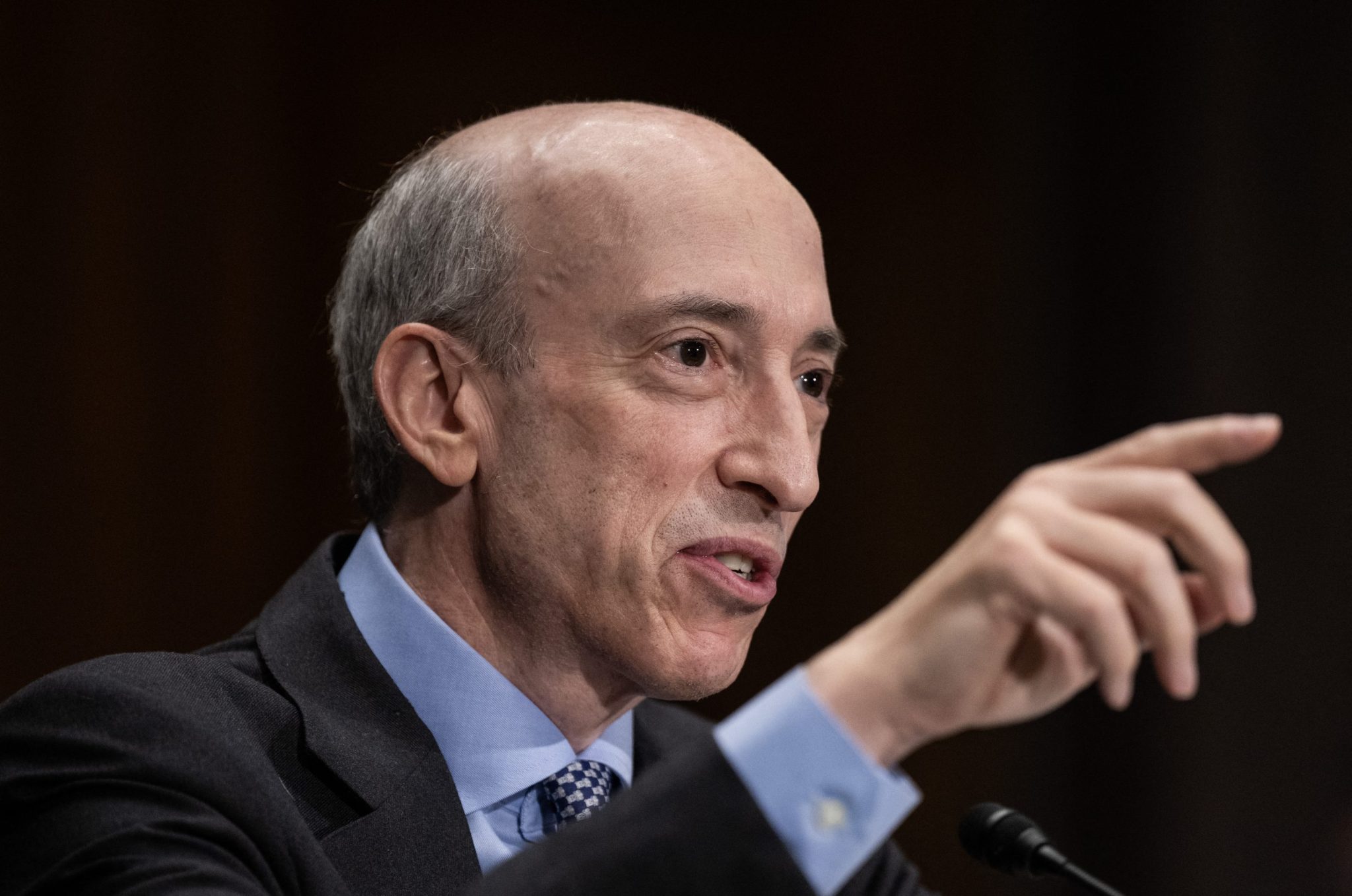A bitter legal fight between the crypto industry and the Securities and Exchange Commission grew more intense on Thursday as Consensys, a major backer of the Ethereum blockchain, filed a lawsuit against the agency in Texas federal court. The complaint seeks to head off an impending SEC lawsuit against the company over features of its popular MetaMask wallet, but also asks the court to resolve one of the biggest legal uncertainties hanging over the crypto industry by stating that Ethereum’s digital token, Ether, is not a security.
In its 34-page legal filing, Consensys uses dramatic language to argue that the SEC’s efforts to exert jurisdiction over Ethereum is both illegal and a threat to blockchain technology more broadly.
“The SEC’s unlawful seizure of authority over ETH would spell disaster for the Ethereum network, and for Consensys. Every holder of ETH, including Consensys, would fear violating the securities laws if he or she were to transfer ETH on the network,” the complaint states. “This would bring use of the Ethereum blockchain in the United States to a halt, crippling one of the internet’s greatest innovations.”
The new lawsuit comes as SEC Chairman Gary Gensler pursues an aggressive enforcement campaign against leading companies in the crypto sector, including Coinbase and Uniswap. In recent weeks, this campaign has involved a wave of subpoenas asking firms and developers for documents related to their dealings with the nonprofit Ethereum Foundation, which supports the blockchain’s development.
Gensler’s tactics have angered many in the crypto industry who have complained the SEC has failed to provide clear rules or to create a regulatory model that accounts for the distinct features of blockchain technology. Gensler has disputed this, claiming existing securities laws are clear and sufficient, and that the crypto industry refuses to comply with them.
The controversy over Ethereum has been especially heated since the SEC has signaled repeatedly in the past that the blockchain’s tokens, like Bitcoin, are not securities and therefore outside its jurisdiction. This includes a landmark 2018 speech where a senior official stated that Ethereum had become “sufficiently decentralized” as well as the agency’s decision last year to allow Ethereum futures trading—an implicit acknowledgement that Ether is a commodity. Meanwhile, video has surfaced of Gensler himself, in his role as a private citizen, telling hedge funds in 2018 that Ethereum is not a security.
These precedents, however, have failed to dissuade Gensler, who appears to be using a recent feature of Ethereum, known as staking, as grounds for the recent legal campaign.
A warning notice and a preemptive lawsuit
The Consensys complaint filed on Thursday reveals that the SEC earlier this month issued a so-called Wells Notice, which describes a formal letter warning the agency intends to sue a firm, and often leads to a settlement soon after. The complaint added that, in a related phone call, the SEC told Consensys that MetaMask was operating as an unlicensed broker dealer.
According to Consensys, the SEC objects to MetaMask offering users a means to stake Ethereum on their behalf. Staking is a relatively new process for Ethereum, introduced on a blockchain-wide basis in September 2022, that replaced energy-intensive mining with with a system of validators who pledge collateral in order to become a trusted validator.
In an interview with Fortune, Consensys founder Joe Lubin described as “preposterous” the theory that staking transformed Ethereum from a commodity into a security.
“The act of staking is really just posting a security bond so you can get paid to contribute labor and resources to help operate the Ethereum protocol. Now they’re trying to turn that into some sort of investment contract,” Lubin said.
The SEC did not immediately respond to a request for comment from Fortune about the lawsuit or on the agency’s view of the legal status of staking.
Lubin also stated that Gensler’s legal position appeared to be an attempt to halt the overall growth of crypto, and to justify the SEC blocking pending applications by companies to launch spot ETFs for Ethereum following the huge popularity of Bitcoin ETFs.
“They are trying to regulate a technology on its merits, which the SEC shouldn’t be doing. They’re trying to stifle certain kinds of innovation. And they’re trying to do that because probably they see Ether spot ETFs as a floodgate that’s going to bring a lot of capital into our ecosystem,” said Lubin.
The Consensys lawsuit was filed in Texas, which dovetails with a broader strategy of the crypto industry to tee up eventual legal appeals in the U.S. Court of Appeals for the Fifth Circuit. The circuit has shown greater skepticism of agency actions than other courts and, if the industry can win a favorable judgment, it would likely tee up an appeal for the Supreme Court.
It’s unclear for now what will happen in the event the SEC chooses to file a lawsuit on its own to follow up on the Wells Notice instead of resolving the issues with Consensys in the Texas court.
The complaint itself asks the court for a number of additional rulings beyond declaring that Ethereum is not a security. Those include declarations that MetaMask is not a broker dealer, and that the SEC is violating the Administrative Procedures Act and the Constitution’s guarantee of due process. It also seeks an injunction barring the SEC from conducting any investigations on the premise that Ethereum is a security.

